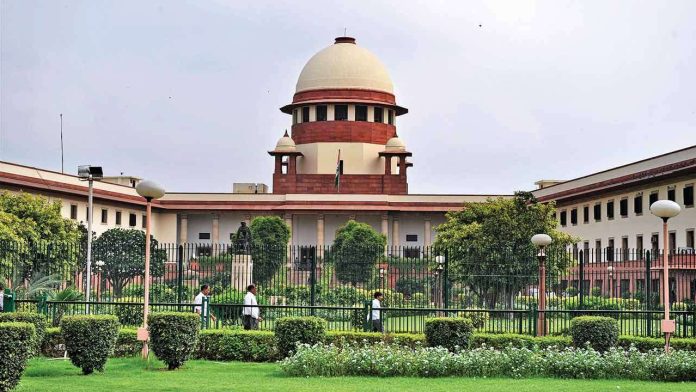New Delhi: The Supreme Court of India has raised concerns about the increasing number of police encounters in Assam, directing the Assam government to provide detailed information on 171 encounters reported between May 2021 and August 2022. Also, the Court asked if Assam’s State Police have been targeting a specific community through these encounters. This query stems from a plea brought forth by advocate Arif Md Yeasin Jwadder, questioning whether police actions disproportionately affect certain groups.
Addressing the issue of alleged “fake” encounters, the Supreme Court highlighted the importance of Human Rights Commissions, emphasizing their mandate to act proactively in protecting civil liberties. Specifically, the Court requested data on any investigations the Assam Human Rights Commission has conducted regarding these encounters.
The Court’s directive followed its decision to review a petition challenging a Gauhati High Court ruling that dismissed a PIL related to the matter. Characterising the situation as “very serious,” the Court underscored the importance of transparency and accountability, asserting that such cases require rigorous examination.
In his petition, Jwadder raised concerns about an increase in purported “fake encounters,” asserting that Assam Police has not followed the SC 2014 guidelines on police encounter investigations. According to Jwadder, since the current Chief Minister Himanta Biswa Sarma assumed office in May 2021, there have been over 80 encounters resulting in 28 deaths and 48 injuries.
Government data indicates a rise in encounters, with 171 incidents reported, leading to 56 fatalities – four of which occurred in custody – and 145 injuries. For comparison, only 62 such cases, around one-third of the recent figure, were documented in Assam between 2016 and 2021. Concerns over a possible communal angle are intensified by reports indicating that a notable portion of the victims are Muslims, further fuelling worries about the misuse of police power for political gain.
This pattern of encounters, critics argue, not only reinforces stereotypes but also distracts from necessary criminal justice reforms. By focusing on encounters as a means of control, systemic issues like police training, accountability, and judicial oversight are overlooked, risking a dangerous normalisation of extrajudicial actions.




